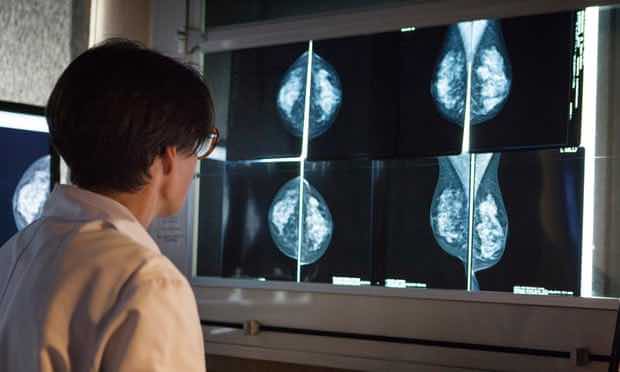Cancer is not a battle, hair loss does matter – and even doctors like me can’t prepare for the effects of chemotherapy This article titled “I’m an oncologist who got breast cancer. This is what I learned” was written by Victoria Lavin, for theguardian.com on Thursday 7th June 2018 08.38 UTC In August 2017, during the last month of my maternity leave, I was diagnosed with breast cancer. Initially, I was plagued by memories of the young patients I had discharged home or to the hospice for end-of-life care. Thankfully they are few – but they are the ones you remember. My experience of being on the other side of the consultation desk will shape my future career and it has helped me to understand what goes on for patients. It has been an education in patience, humility and gratitude. Related: The NHS saved my little sister – so I decided to become a doctor First, there were the well-meaning stock phrases which I had so often used: “You’re so brave; you can fight this”. Really? Yesterday I was a 34-year-old clinical oncology trainee and mum of two, and today I’m a professional cancer warrior? Cancer didn’t feel like a fight to me and I won’t be asking my patients to go into battle in future. I have prescribed countless cycles of chemotherapy throughout my career, but still there were some surprises. For example, intravenous dexamethasone given for nausea makes your bottom tingle when administered. Subcutaneous filgrastim to boost white cell production stings if you give it straight from the fridge. The biggest ego-bruising revelation was learning who makes the difference. As the doctor prescribing the treatment I always felt my role was the most crucial. For the patient, however, it’s the healthcare assistant who smiles when you walk in and gets you seen on time; the volunteer who brings you a cup of tea; the complementary therapist who offers reflexology and a chat during treatment; and the nurse who gets the cannula in at the first attempt. Embracing the new world of turban tying helped me to feel confident with my radically different appearance I had never visited Maggie’s centres as a doctor, but discovered they offered a welcome haven for myself, my friends and family away from the bustle of the hospital. I had no idea about the varied and far-reaching support they offer. I will certainly be directing my patients to some of their sessions. Hair loss is something we often gloss over in busy clinics. I have been guilty of simply handing over a wig leaflet as the patient walks out of the door. It matters. It changes a person’s whole identity. I worried what my children would think and that it made me look like a victim. In the end, my daughter said: “Mummy, you’ve got no hair like Grandad Pete” and carried on making her Disney princess puzzle. For me a recommendation from a colleague for a local hijab stylist was a game-changer. Embracing the new world of turban tying and styling helped me to feel confident with my radically different appearance, look less like Grandad Pete and keep that victim behind closed doors. It was no surprise that chemotherapy was gruelling. The first part of the treatment was predictable, but it was tough trying to fit housework, spending time with family and friends and exercising into the three days I felt well. The second half of the process was a treatment affectionately known as the “red devil” among cancer bloggers. Four hours after the infusion I felt an overwhelming need to lie down and sleep. Such extreme tiredness that brings you to tears is something I hadn’t experienced before. Giving patients permission to be kind to themselves in the first few days after treatment and not expecting to function anywhere near normally is something I will take back to the clinic. There was just time after the final cycle to recover and begin preparing for surgery. Finding that post-surgery bras are VAT exempt felt like a considerate concession from the government and high street retailers – and another tip to pass on to patients. Related: I thought my career as a doctor was over. It was the arts that saved me After surgery, I was very pleased to receive a physiotherapy leaflet in my pre-operative assessment and an invitation to a group session to ensure that arm movement was maintained. With scarring, the arm can become stiff. There was no way I was going to be that patient who couldn’t get their arm above their head and into the treatment position for radiotherapy. Thankfully the militant physiotherapy paid off and my radiotherapy planning scan went without a hitch. I have heard the end of treatment bells ringing out in the department over the last three years and I have sometimes offered a clap or cheer if I was passing. Now, as I ring the end of treatment bell for myself, I can appreciate what it is to do so. The concept is another fantastic innovation by a family affected by cancer and through charitable donations they help patients mark the end of gruelling cancer treatment with a symbolic bell placed in chemotherapy and radiotherapy departments across the UK. For me, the bell marks the start of my transition from patient back to doctor. As I plan my return to work I hope I can appreciate more what patients go through on their journey – and understand what a difference all the dedicated and caring members of the NHS machine make to the patient experience, despite all the pressures they face. Victoria Lavin is a clinical oncology trainee working at the Christie hospital. She tweets @vjplested If you would like to contribute to our Blood, sweat and tears series about experiences in healthcare, read our guidelines and get in touch by emailing sarah.johnson@theguardian.com Join the Healthcare Professionals Network to read more pieces like this. And follow us on Twitter (@GdnHealthcare) to keep up…
Read more on: http://newsrule.com/im-an-oncologist-who-got-breast-cancer-this-is-what-i-learned/

